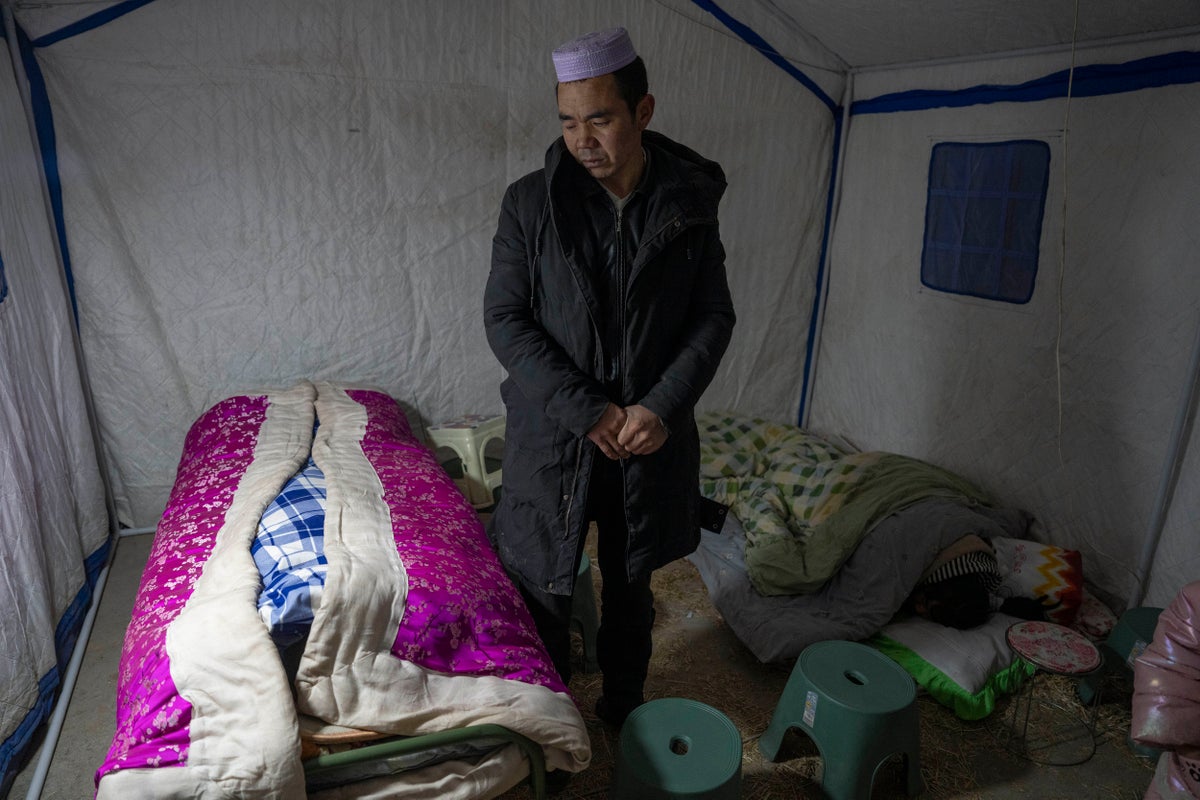
Her relatives cleaned her body and wrapped it in a white cloth in the bare emergency shelter issued to her family.
Han Suofeiya, a mother of three young children, was one of more than 130 people who died when the earth shook violently in the middle of the night in northwest China this week, burying her in the debris of her mother’s home.
As survivors in blue tent cities bundled up against the winter cold, many had to process not only the loss of their homes and their livelihoods but also the greatest loss of all: the sudden death of loved ones.
Han Suofeiya was Muslim, as are many in this rugged mountainous region not far from the ancient Silk Road that once ferried silks and other goods, along with ideas and religions, between China and the Middle East and Europe. Her burial in the village of Yangwa in Gansu province was carried out in the community's tradition.
Both men and women in the crowd wept openly as her body was brought out of the family's temporary shelter and placed in a metal frame. A large green covering with Arabic script was laid over the frame and about eight men hand-carried it to the cemetery. A lamb was slain as the procession began.
Three people, including a small child, were being buried on Wednesday. Only men attended the actual burial. Wearing skullcaps, about 60 kneeled in the sun on green matting spread over bits of scrubby brown vegetation. After they said prayers for each victim, the white-shrouded bodies were carefully lowered into two deep trenches and put into alcoves that had been carved out at the bottom on the sides. Once the bodies were inside, the openings of the alcoves were lined with bricks.
Her 10-year-old son, Ma Yuanke, had been pulled out alive from the rubble of their home by his grandfather. (Han Suofeiya had gone to stay at her mother's home, because she had fallen sick.) A relative hugged Ma tightly as both cried during the ceremony. Kneeling on the hard winter ground, the son cried again as shovelfuls of earth were thrown into the grave.







